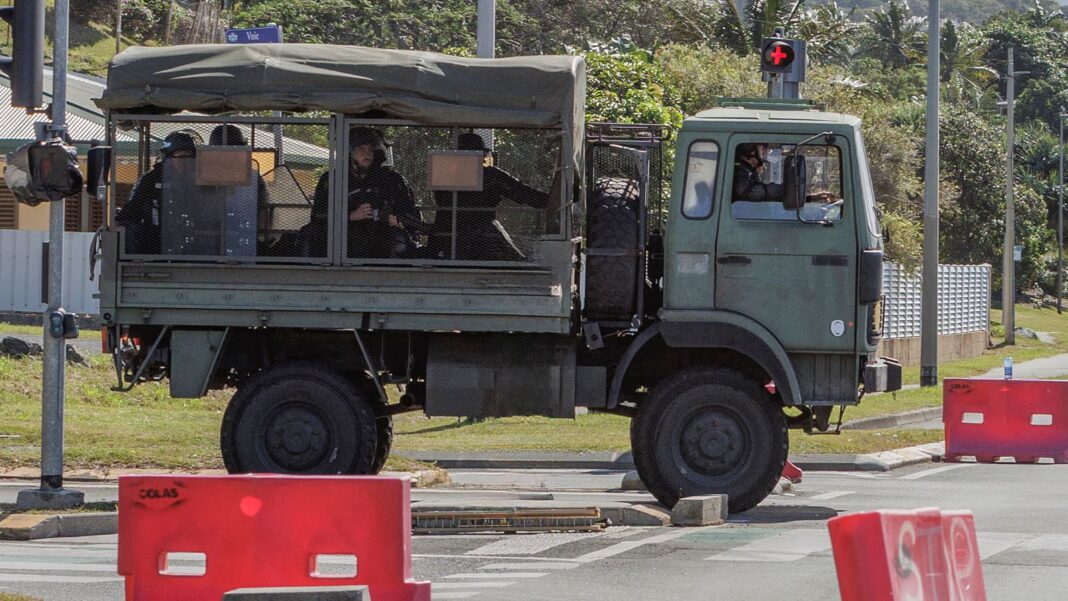Police reinforcements have been arriving in the French Pacific territory of New Caledonia as part of a major security crackdown following days of deadly rioting.
An extra 1,000 personnel have been sent to the archipelago in addition to the 1,700 already deployed, after France imposed a state of emergency to tackle the unrest, which included a curfew and a ban on TikTok.
Five people, including two police officers, have been killed in the violence which erupted following protests over voting reforms being pushed through by French President Emmanuel Macron’s government.
At least 60 members of the security forces were injured and 214 people arrested during clashes, that also saw arson and looting.
While the situation is now calmer, confrontations have continued in the capital Noumea, according to France’s high commissioner Louis Le Franc.
He added: “Our calls for calm, peace and reconciliation are beginning to be heard… It is important that those who are at the origin of the clashes, of the blockages, hear this.”
Speaking after a meeting at the Elysee Palace in Paris, French Prime Minister Gabriel Attal said: “Everything is being done to restore order and calm that Caledonians deserve.”
Trouble has flared over a proposed new law that will let French residents who have lived in New Caledonia for 10 years vote in provincial elections.
Some local leaders fear the move will dilute the indigenous Kanak vote.
It is the latest flashpoint in long-standing tensions over French rule of the mineral-producing Pacific island some 930 miles (1,500 km) east of Australia.
Security reinforcements have been sent from France. Pic: Reuters
The Pacific Conference of Churches has joined regional inter-governmental groups in calling for France to withdraw the constitutional bill, and pressed for the involvement of the United Nations.
Pacific Elders Voice, a group of former Pacific leaders, has said decisions are being made in Paris without meaningful consultation and France should listen to “indigenous Kanak voices and the Pacific-wide support for self-determination”.
Rock Haocas, a leader of a Kanak workers union in Paris, said: “We wish to see the French government make a strong political statement rather than send troops.
“Starting a conversation would be a strong political statement.”

Keep up with all the latest news from the UK and around the world by following Sky News
The last time France imposed emergency powers on one of its overseas territories was in 1985, also in New Caledonia.
The island is home to about 270,000 people and 10 time zones ahead of Paris.
It became French in 1853 under Emperor Napoleon III, Napoleon’s nephew.

A state of emergency has been imposed in response to the violence. Pic: AP
Following the Second World War it became an overseas territory, with French citizenship granted to all Kanaks in 1957.
A peace deal between rival groups was reached in 1988.
A decade later, France promised to grant New Caledonia greater devolution and hold up to three successive referendums on its future.
Read more from Sky News:
French police shoot dead armed suspect who ‘planned synagogue attack’
Ukraine’s second city hit by drones during country’s longest air raid alert
The referendums were organised between 2018 to 2021 and a majority of voters backed the island remaining part of France.
The pro-independence Kanak people rejected the results of the last vote, which they boycotted because it was held at the height of the COVID pandemic.







